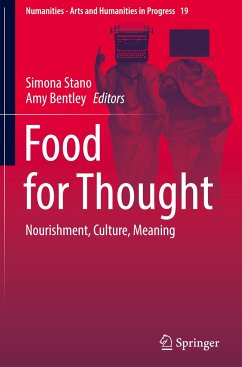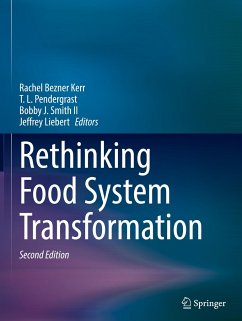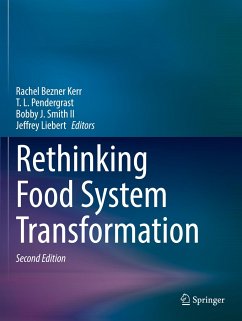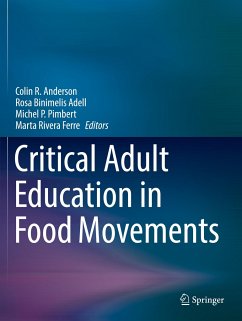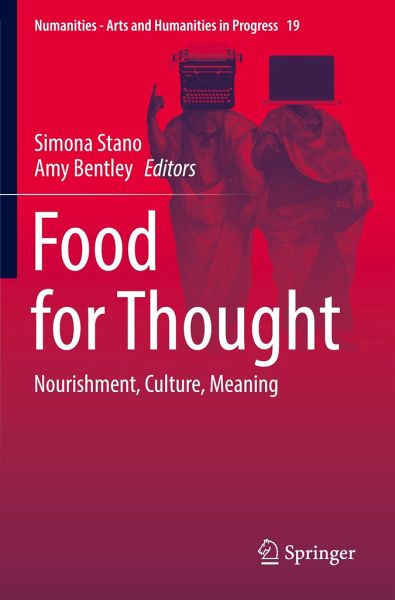
Food for Thought
Nourishment, Culture, Meaning
Herausgegeben: Stano, Simona; Bentley, Amy
Versandkostenfrei!
Versandfertig in 1-2 Wochen
115,99 €
inkl. MwSt.

PAYBACK Punkte
58 °P sammeln!
This volume offers new insights into food and culture. Food habits, preferences, and taboos are partially regulated by ecological and material factors - in other words, all food systems are structured and given particular functioning mechanisms by specific societies and cultures, either according to totemic, sacrificial, hygienic-rationalist, aesthetic, or other symbolic logics. This provides much "food for thought". The famous expression has never been so appropriate: not only do cultures develop unique practices for the production, treatment and consumption of food, but such practices inevit...
This volume offers new insights into food and culture. Food habits, preferences, and taboos are partially regulated by ecological and material factors - in other words, all food systems are structured and given particular functioning mechanisms by specific societies and cultures, either according to totemic, sacrificial, hygienic-rationalist, aesthetic, or other symbolic logics. This provides much "food for thought". The famous expression has never been so appropriate: not only do cultures develop unique practices for the production, treatment and consumption of food, but such practices inevitably end up affecting food-related aspects and spheres that are generally perceived as objectively and materially defined.
This book explores such dynamics drawing on various theoretical approaches and analytical methodologies, thus enhancing the cultural reflection on food and, at the same time, helping us see how the study of food itself can help us understand better what we call "culture". It will be of interest to anthropologists, philosophers, semioticians and historians of food.
This book explores such dynamics drawing on various theoretical approaches and analytical methodologies, thus enhancing the cultural reflection on food and, at the same time, helping us see how the study of food itself can help us understand better what we call "culture". It will be of interest to anthropologists, philosophers, semioticians and historians of food.



